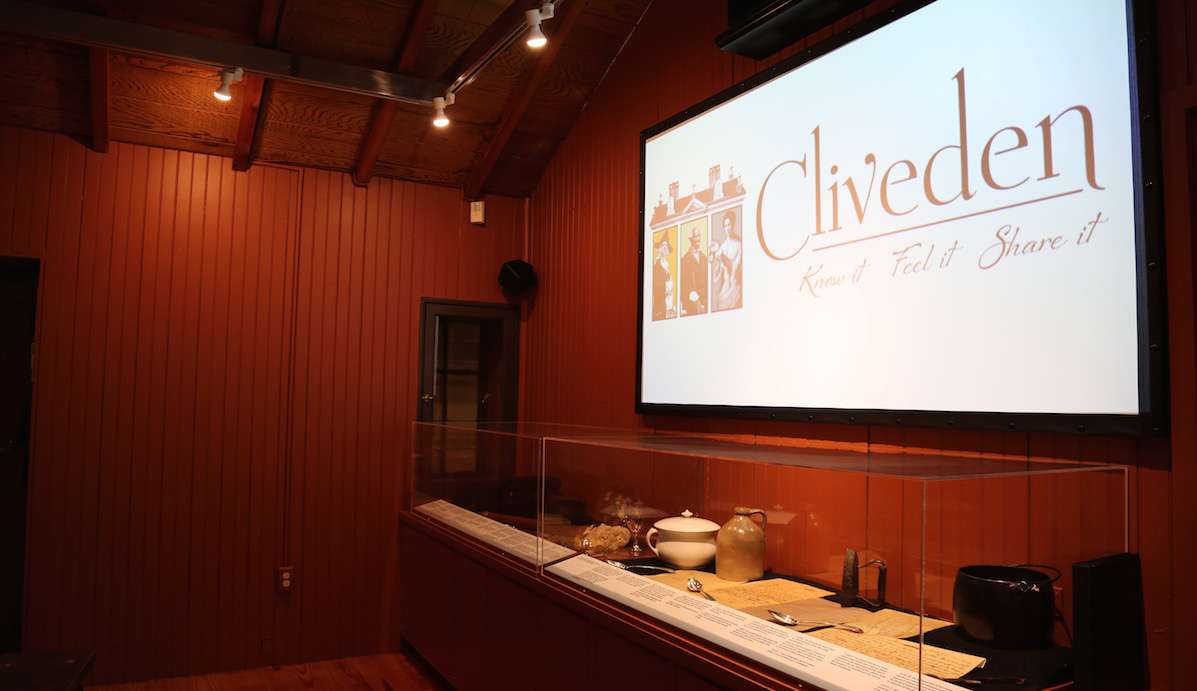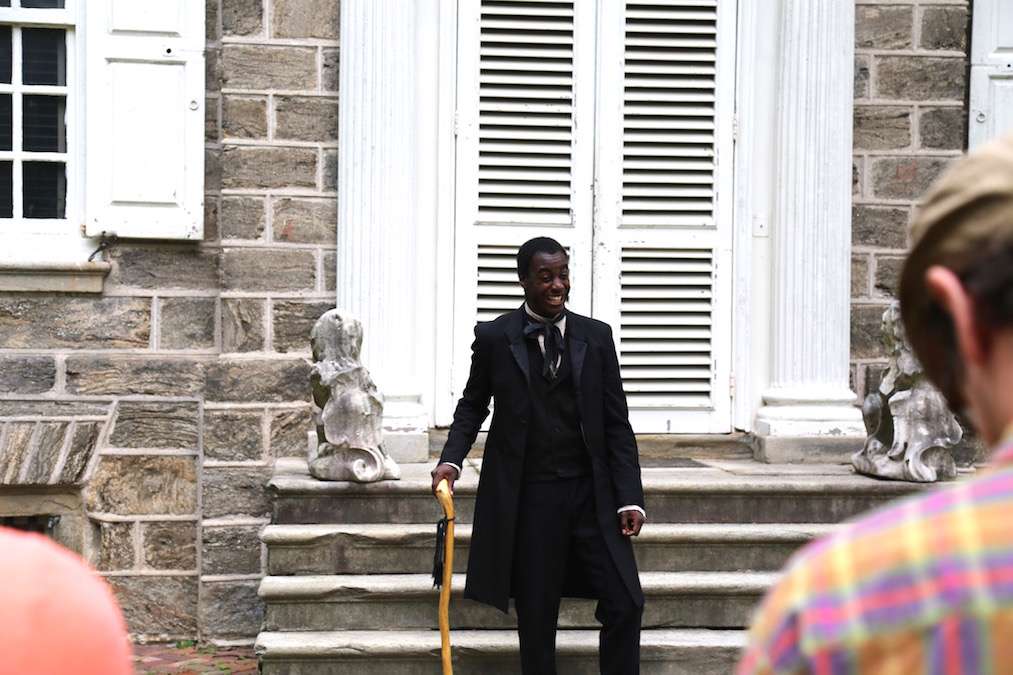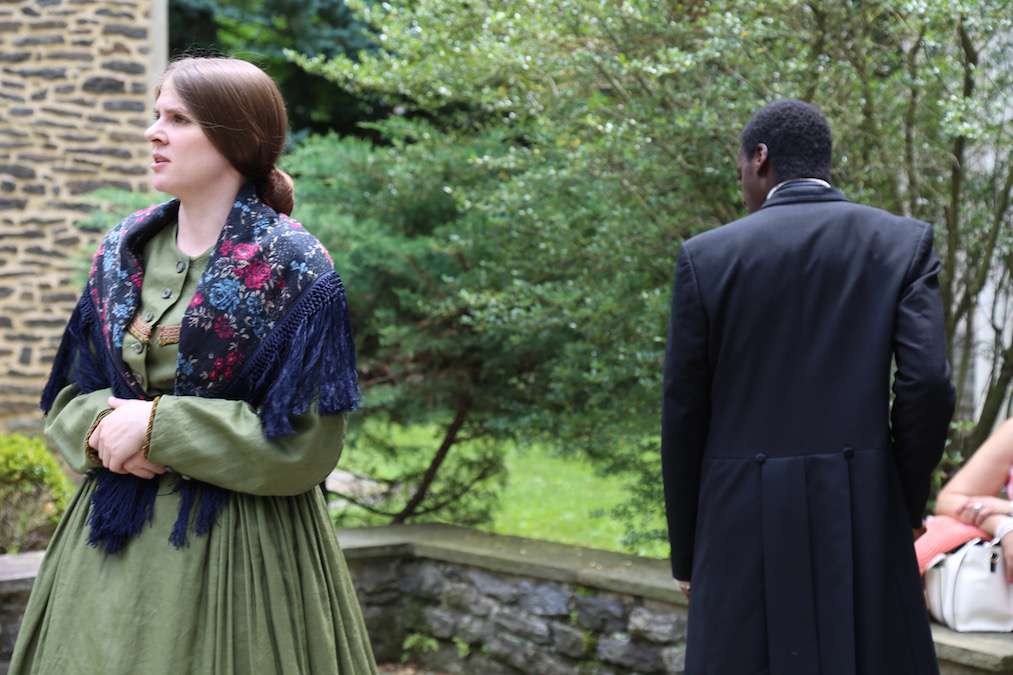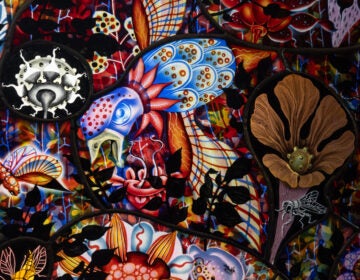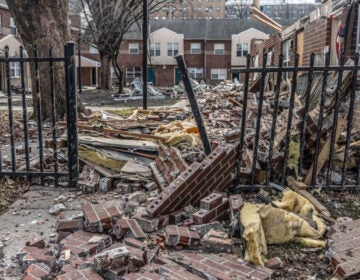‘Liberty to go to see’: The untold stories of Cliveden
A man dressed in a short, round tailcoat and a black waistcoat stood stiffly atop the steps leading in to the Chew Family’s country house in Germantown. The house was built between 1763-67 by Benjamin Chew — a prominent Philadelphia lawyer and Chief Justice of the Supreme Court of Pennsylvania.
An actor portraying James Smith, a lifelong slave to the Chews, beckoned a group of 20 people to enter the doors of a 200-year-old house — a house that served as the ground for many a people’s battle for liberty.
Cliveden performed the last few shows of its interactive play, “Liberty To Go To See” over Juneteeth weekend — the day that marks the end of slavery. Many associate the Cliveden as a crucial site for the 1777 Revolutionary War Battle of Germantown, but the combined efforts of New Freedom Theatre and award-winning director and actor Johnnie Hobbs, went beyond this legacy.
An arson fire that occurred in 1977 destroyed many important artifacts of the house, but it spared a number of documents that provide detailed insight into the daily lives of the Chew family. The team at Cliveden has been able to use these documents to derive the family’s history of slave-ownership and use the site for interactive performances and learning excercises.
The exercise began with a brief dance led by Patricia Scott Hobbs, the managing director at New Freedom Theatre and resident choreographer. The waiting area at Cliveden quickly transformed into an old-style gym class as Scott got everyone up on their feet to learn square dancing.
“Gentleman stand up! Take a bow. Now ladies! Now shake hands with your neighbor. Now wave at someone! Arms up, down, up down…clap 3 times, to the left and right and left and right.”
The room echoed with laughter and everyone’s cheeks turned red as they struggled to keep up with the claps and gallops. Then, Scott quickly switched modes.
“From now on, whenever you want to say something, you must ask for liberty to speak, and shall only speak once I grant you that liberty.”
The room paused in silence.
The confusion only seemed to grow for the next few moments; “What are some of the liberties we have?” asked Scott.
“The right to live,” answered a middle-aged man, confidently, and without asking for permission.
In what followed, many asked for “liberty to speak,” and many didn’t. Many were forced to ask for it, and many were let off easy. As the room permeated with tension, Scott revealed that those who had spoken without permission were told to do so on purpose — they were given a “privilege.” In the span of a few critical moments, the room reeked with privilege and inequality.
A black woman from the audience talked about her discomfort around being granted liberty to speak without permission.
“I felt bittersweet speaking up because people of my skin color are still being treated unjustly,” she said.
The group then moved into the Chew Family Main House, where a reenactment was taking place. There, they found Benjamin Chew Sr. griping about a loss of freedom from colonizers.
“No, I don’t feel free…not when I’m being taken away from my own home,” he growled viciously while baring his teeth.
“Not many of us do, sir,” responded his servant, staring at the floor somberly.
In this historic house, Benjamin Chew sought liberty from the British, all while holding the liberty of the slaves that he owned hostage.
As the audience followed the actors through the bedrooms and stairs of the house, one woman said she felt her “stomach hurt just from observing the helpless state of everyone in the house.”
“For years, the emphasis has been on the reenactment of the battle, but the battle is only one of the things this site has to offer. We want to reenact the stories of the people who actually fought these wars,” said Cliveden Executive Director David Young.
For a young woman who played the role of slave Charity, the play gave perspective to her present-day struggles.
“[The play] provides context to what’s going on today with privilege…we still live under systems which will hinder me, as a black-skinned woman compared to my white counterparts.”
WHYY is your source for fact-based, in-depth journalism and information. As a nonprofit organization, we rely on financial support from readers like you. Please give today.


